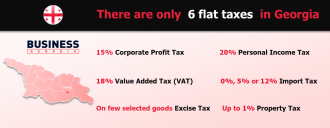
Georgian tax model – benefits for local and international businesses
According to the Doing Business Report commissioned by the World Bank,Georgia ranks 9th in the world in 2018 by ease of doing business. Moreover,…
Read More
According to the Doing Business Report commissioned by the World Bank,Georgia ranks 9th in the world in 2018 by ease of doing business. Moreover,…
Read More
Georgia became startup-friendly country especially after the opening of the First Technology Park in 2016, Tbilisi. Tech Park started providing young creators with high…
Read More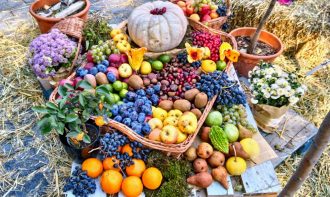
Agricultural traditions are the main part of Georgian cultural heritage and mentality, as long as favorable climate with fertile soil make it one of…
Read More
Construction & Building is the global business of creating physical infrastructure such as residential buildings, highways, bridges, factories, airports and power plants. Normally the…
Read More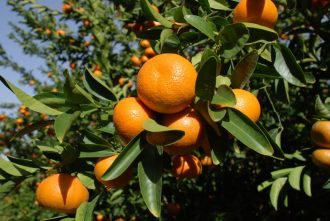
Georgian mandarin is cultivated in Western regions of Georgia, in Adjara, Guria, Samegrelo and Apkhazia. Russia and Ukraine are leading Georgian mandarin export countries,…
Read More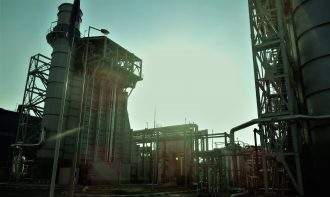
Over the last decade electricity consumption in Georgia has grown largely in line with real GDP growth rate and reached 10.4 TWh in 2015. If…
Read More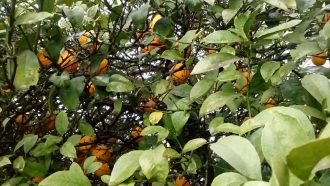
Agriculture has both big economic and social functions in Georgia. The sector employs more than half of the country’s work force and for many…
Read More
Formation of export-oriented enterprises, free trade agreement with China, Anaklia port and Startup Georgia – there are few of the main subjects, in huge interview…
Read More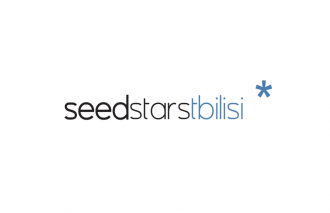
TBILISI, GEORGIA, June 1st, 2016 – Seedstars World, the global seed-stage startup competition for emerging markets and fast-growing startup scenes, is coming to Tbilisi…
Read MoreH.E.Giorgi Kvirikashvili, Prime Minister of Georgia and H.E. Andrej Kiska, President of Slovakia opened the Georgia-Slovakia Business Forum, which was attended by H.E. Nodar…
Read More